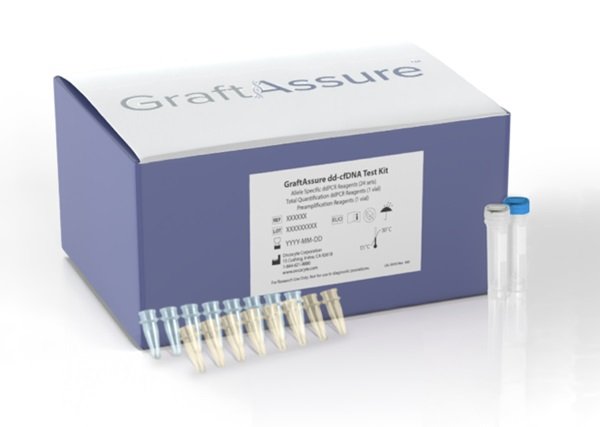After unsuccessful attempts to bring its legacy lung cancer test to market and significant downsizing, Oncocyte Corp. is leaving Orange County.
In the sprawling landscape of biotechnology, the journey from innovation to commercialization can often resemble a high-stakes gamble. For Oncocyte Corp., now rebranded as Insight Molecular Diagnostics Inc. (iMDx), the past few years have been a tumultuous rollercoaster, punctuated by setbacks that culminated in a significant shift: a relocation from vibrant Orange County to the heart of Nashville, Tennessee. This move reflects a strategic pivot as the company attempts to shed its troubled past and reorient its focus towards transplant medicine, abandoning its initial efforts in lung cancer diagnostics.
From Orange County to Nashville: A Strategic Shift
The corporate exodus began in June 2023 when iMDx made headlines by relocating its headquarters from Irvine, California to Nashville, a city touted as the healthcare capital of the South. This transition was not merely a change of scenery; it symbolized a fundamental shift in the company’s operational ethos and strategic direction. “Relocating to Nashville brings us closer to critical resources and talent, which are essential as we push forward,” said iMDx Chief Financial Officer Andrea James. With this move, the company can tap into Nashville’s burgeoning healthcare innovation ecosystem.
In conjunction with its geographic shift, iMDx underwent a rebranding, adopting a new name and ticker symbol—“IMDX” on the Nasdaq. The company now occupies over 10,600 square feet in Nashville, including a CLIA-certified lab that promises to catalyze its transition from development to commercialization.
Reviving the Company: Financial Considerations
The financial landscape of iMDx is indicative of the challenges faced by many biotech firms. The company raised $29.1 million in February, aimed at enhancing the development of its new transplant assay, GraftAssureDx. Experts in the field, like Dr. Catherine Moore—a biotechnology analyst—highlight the critical need for firms to raise capital: “Innovation in biotech requires substantial investment. It’s encouraging to see iMDx securing funds, but they must navigate the commercialization process adeptly to see any return.”
Also a cause for concern is the company’s accumulated deficit, which stood at $350.5 million as of 2024. This figure underscores the financial vulnerability that many biotech firms face when moving toward a market launch.
Navigating Market Dynamics: The GraftAssureDx Vision
At the core of iMDx’s renewed ambitions is the GraftAssureDx assay, developed to detect signs of transplant rejection. Unlike previous offerings, this new in vitro diagnostic kit represents a shift from the company’s earlier focus on oncology diagnostics; a move that many experts view as critical for its survival. “Transplant medicine holds vast potential, especially with the growing number of patients requiring organ transplants,” explains Dr. Samuel Patel, a leading transplant researcher.
- Transplant rejection detection is crucial for patient outcomes.
- The number of organ transplants is steadily rising, increasing demand for reliable diagnostics.
- Timing is essential; the GraftAssureDx test aims for FDA clearance by 2026.
Furthermore, an existing version of GraftAssureDx launched in July for research purposes already has ten active collaborations across the U.S., Europe, and Southeast Asia, showcasing the product’s potential market interest even before its full clinical deployment.
The Challenges Ahead
While optimism permeates discussions around the revitalized GraftAssureDx, the remnants of iMDx’s fraught past continue to linger. The company’s initial foray into lung cancer diagnostics met a bitter end when the DetermaDX liquid biopsy test failed to meet the necessary clinical endpoints, leading to a significant drop in share value. Such critical missteps remind industry watchers of the inherent risks in biotech: “The terrain is filled with uncertainty, and companies often hit snags that can dramatically affect investor confidence,” notes Dr. Emily Chen, a biotech investment strategist.
At press time, iMDx was trading at $3.40, off 5.4% from earlier projections. This decline echoes the investor anxiety stemming from the legacy challenges of the company, compounded by the long timeline anticipated for the new GraftAssureDx approval.
Looking Toward the Future: Reflections and Outlook
As iMDx embarks on this new chapter, questions remain about its capacity to create sustainable value amid the competitive landscape of biotech diagnostics. By shifting focus from its troubled oncology past to the promising field of transplant medicine, the company is attempting to carve out a new identity. Yet, the challenges remain formidable.
Whether the rebranded iMDx will successfully navigate the complexities of commercialization will ultimately depend on its ability to foster innovation, secure essential partnerships, and effectively manage investor expectations. While the move to Nashville offers new opportunities, iMDx will need to cultivate a resilient business strategy that resonates with both the scientific community and potential investors, all while staying true to its mission of advancing healthcare.





